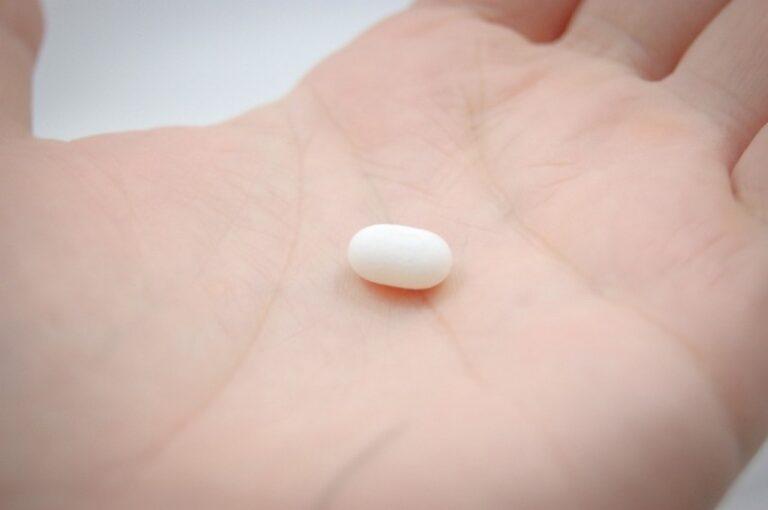The medical field is abuzz with the development of Amycretin by Danish pharma company Novo Nordisk, a promising weight loss drug poised to redefine obesity treatment. Early trials show it outperforms existing solutions such as Ozempic, making Amycretin a potential game-changer in weight management.
Amycretin not only targets the GLP-1 hormone, akin to Ozempic but goes a step further by affecting the amylin hormone, offering a novel approach to curb hunger. This dual-action mechanism positions Amycretin as a potentially superior option for those seeking effective weight loss solutions.
Understanding Amycretin’s mechanism
Amycretin distinguishes itself by targeting two crucial gut hormones involved in appetite and blood sugar regulation: GLP-1 (glucagon-like peptide 1) and amylin. This dual-action mechanism is pivotal for its effectiveness in weight management. Below is a detailed comparison and explanation of how Amycretin operates in contrast to existing treatments like Wegovy:
Hormone targeting:
- GLP-1: Both Amycretin and Wegovy stimulate this hormone, which plays a significant role in lowering blood sugar and reducing appetite
- Amylin: Exclusive to Amycretin, this hormone further enhances appetite control and blood sugar regulation by acting on different receptors
Method of Administration:
- Amycretin: Taken as a daily oral pill, offering convenience and potentially increasing patient compliance
- Wegovy: Administered as a weekly injection, which might be less preferable for some individuals
Mechanism of Action:
- Amycretin: Acts as a co-agonist of both GLP-1 and amylin receptors. This comprehensive approach not only aids in appetite suppression but also helps in controlling blood glucose levels through complementary pathways. Additionally, the primary active ingredient in Amycretin, AY-1000, exhibits anti-inflammatory properties, which may contribute to its efficacy by modulating the immune system’s response and reducing inflammation.
The unique combination of GLP-1 and amylin mimicry by Amycretin, alongside its anti-inflammatory benefits, positions it as a more potent solution compared to treatments focusing solely on GLP-1 stimulation. This innovative approach to weight management underscores the potential of Amycretin in offering a more effective and user-friendly option for individuals struggling with obesity.
Comparing Amycretin with existing weight loss solutions
In the realm of weight management solutions, Amycretin emerges as a formidable contender, showing promising results in early-stage trials. This section delves into a comparative analysis between Amycretin and existing weight loss solutions, notably Ozempic, Wegovy, and Mounjaro, focusing on efficacy, mode of administration, and side effects.
Efficacy Comparison:
- Amycretin: Early trial data indicates a 13% body weight loss over 12 weeks
- Ozempic and Wegovy: Approximately 6% body weight loss over the same period
- Mounjaro: Leads to about 21% weight loss over the first year and five months
Mode of Administration:
- Amycretin: Available as a daily oral pill
- Ozempic, Wegovy, Mounjaro: Administered as once-weekly injections
Side effects:
- Common side effects for both Amycretin and Wegovy include nausea, vomiting, and diarrhea
The comparison underscores Amycretin’s potential advantages, particularly its double efficacy rate over Ozempic and Wegovy in the short term and its oral administration form, offering an appealing alternative for those averse to injections. However, it’s worth noting that while Amycretin shows rapid results within the first 12 weeks, Mounjaro demonstrates a higher overall weight loss percentage over a longer period. This suggests that Amycretin could serve as a powerful initial weight loss tool, with treatments like Mounjaro offering sustained long-term results.
The clinical evidence behind Amycretin
Amycretin has garnered attention for its potential in weight management, with clinical evidence highlighting its safety, efficacy, and additional health benefits. Key findings from various studies include:
Safety and tolerance:
- Amycretin and other GLP-1 drugs like semaglutide share a similar side effect profile, primarily including nausea, vomiting, and diarrhea
- Phase 1 studies confirmed Amycretin‘s safety, with side effects aligning with those observed in tests of GLP-1 drugs and an injectable version of Amycretin
Weight loss and health benefits:
- Participants in early trials experienced a significant weight loss of approximately 12% over the evaluation period, outperforming the placebo group’s 1% weight loss
- Beyond weight loss, Amycretin showed promise in reducing inflammation, joint pain, and stiffness in osteoarthritis patients, improving cardiovascular health by lowering LDL cholesterol and raising HDL cholesterol levels, and even exhibiting anti-aging effects by reducing the appearance of wrinkles and fine lines
Long-term efficacy and safety:
- Despite promising early results, the long-term effectiveness and safety of amycretin remain under investigation in larger and longer studies
- The drug’s Phase 3 clinical trials mark the final stage before seeking FDA approval, aiming to solidify its position as a safe and effective weight management solution
This clinical evidence underscores Amycretin’s potential as a multifaceted treatment option, not only for weight loss, but also for improving overall health outcomes.
Future prospects and FDA approval process
Amycretin’s journey towards FDA approval and its prospects is a multifaceted process, heavily intertwined with clinical research and regulatory strategies. Novo Nordisk, the pharmaceutical giant behind Amycretin, is spearheading this endeavor with a clear roadmap:
Clinical trials and FDA concerns:
- Phase 2 trial: Scheduled to begin in the second half of 2024, with outcomes anticipated by early 2026. This trial aims to assess Amycretin’s efficacy and safety on a larger scale
- Subcutaneous form: A version administered via injection is under examination, expecting results in 2025
- FDA approval process: Currently, Amycretin is not FDA-approved, with particular concerns regarding its impact on liver function. Medico Inc., presumably a partner or subsidiary involved, is tasked with conducting additional studies focusing on minimizing these side effects
Market prospects and revenue potential:
- Broad market application: Targeting not only obesity but also chronic pain and potentially autoimmune disorders, Amycretin positions itself as a versatile drug
- Revenue predictions: With successful Phase 3 trials and subsequent FDA approval, Amycretin is projected to generate significant revenue, potentially becoming a blockbuster drug
Expansion beyond obesity treatment:
- Ongoing research: Besides Amycretin, Novo Nordisk is exploring other obesity and weight loss treatments, including a Phase 1 trial for an amylin molecule and a new tri-agonist candidate
- CagriSema development: A late-stage therapy combining semaglutide with an amylin analog, aiming at weight loss, further illustrating Novo Nordisk’s commitment to broadening its portfolio in cardiometabolic diseases.
- This structured approach underscores the pharmaceutical company’s strategic planning in navigating the complex landscape of drug approval and market entry, highlighting the potential of Amycretin to redefine treatment paradigms across several health conditions.
Conclusion
Through this examination, the innovative attributes of Amycretin are brought into sharp relief, depicting its dual action on GLP-1 and amylin hormones as a cornerstone for its remarkable effectiveness in weight loss and management. The comprehensive analysis underscores the superiority of Amycretin over existing options like Ozempic, particularly highlighting its potential for enhanced patient compliance thanks to its oral administration form. The clinical evidence further solidifies Amycretin’s standing, suggesting not only significant weight loss benefits but also broad-spectrum implications for overall health improvement, including cardiovascular health and anti-inflammatory effects.
Looking toward the future, the journey of Amycretin towards FDA approval and its anticipated impact on the treatment of obesity and possibly other conditions remains a focal point of anticipation. The pharmaceutical industry, healthcare providers, and patients alike may soon witness a paradigm shift in the treatment of obesity, with Amycretin at the forefront. Its impending phases of clinical trials and the meticulous process towards regulatory approval highlight a path brimming with potential for redefining obesity treatment standards, making Amycretin a beacon of hope for millions struggling with weight management challenges.
Sources
- Experimental weight loss pill seems to be more potent than Ozempic – New Scientist
- Amycretin Over the Counter Weight Loss Pills – Is it the New Ozempic Pill?
- A Research Study of How a New Medicine Called Amycretin, Given as Tablets, Works in Japanese Men With Obesity
- R&D pipeline
Medical Disclaimer
NowPatient has taken all reasonable steps to ensure that all material is factually accurate, complete, and current. However, the knowledge and experience of a qualified healthcare professional should always be sought after instead of using the information on this page. Before taking any drug, you should always speak to your doctor or another qualified healthcare provider.
The information provided here about medications is subject to change and is not meant to include all uses, precautions, warnings, directions, drug interactions, allergic reactions, or negative effects. The absence of warnings or other information for a particular medication does not imply that the medication or medication combination is appropriate for all patients or for all possible purposes.
Related Articles
What are the main differences between metformin and Ozempic?
The most noticeable difference is the method of administration: Ozempic is administered as a once-weekly injection, whereas metformin is an oral medication taken once or twice daily. Metformin comes in both immediate-release (IR) and extended-release (ER) forms.
In what ways do Mounjaro and Ozempic differ?
Mounjaro and Ozempic differ in their mechanisms of action; Mounjaro targets both GIP and GLP-1 receptors, while Ozempic only affects GLP-1 receptors. Despite this difference, both medications are considered effective for managing type 2 diabetes.
Why might someone choose Ozempic over insulin for diabetes management?
Insulin is essential for cells to absorb glucose from the bloodstream, and when the body doesn’t use insulin effectively, blood sugar levels can rise. Ozempic, on the other hand, is a GLP-1 agonist that mimics a hormone in the body to help regulate insulin levels, offering an alternative approach to managing blood sugar in people with diabetes.










